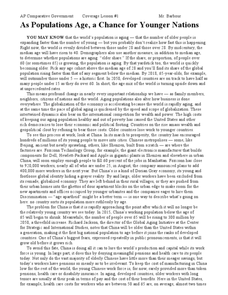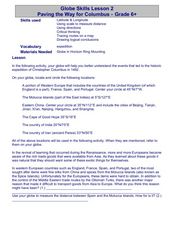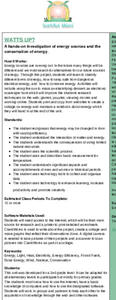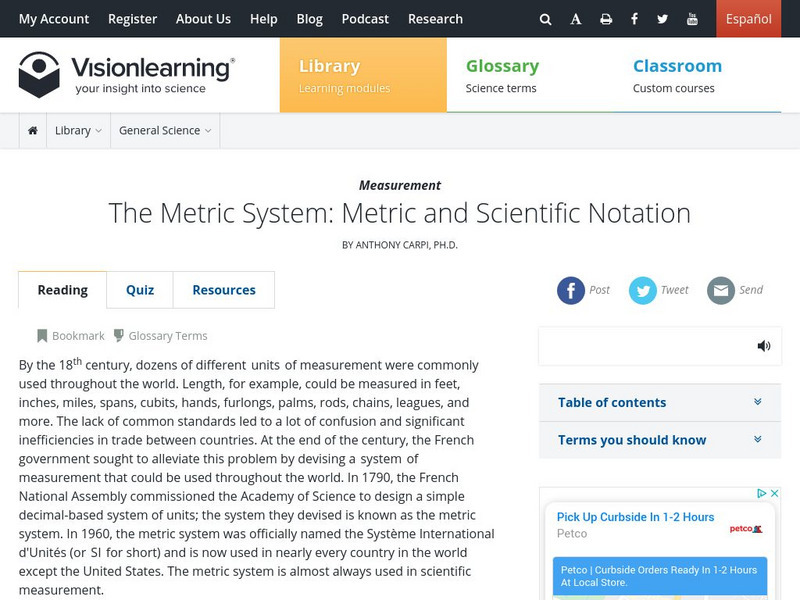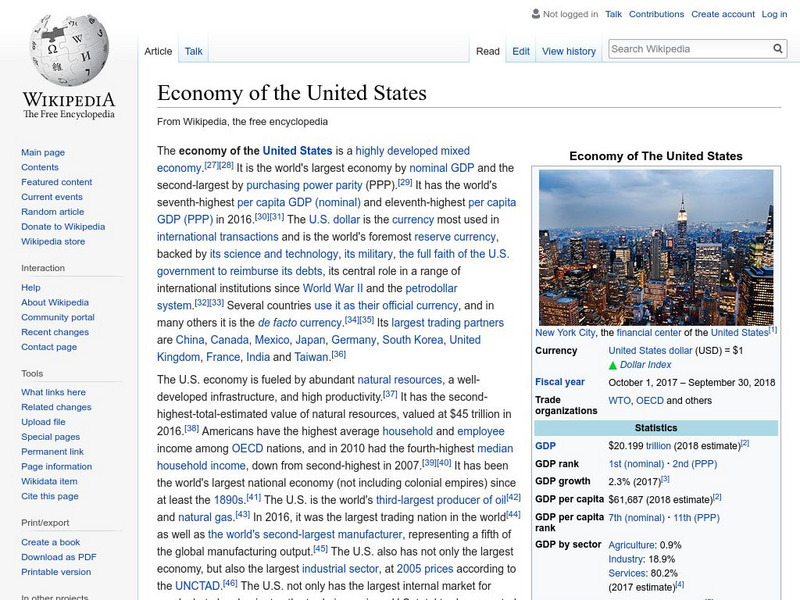Curated OER
A Line Drive
Eleventh graders create a 100 year timeline centering on the life of their research subject and place them in the context of local and national history.
Curated OER
Text as Texture Collage
Students explore the concepts of rhythm, movement, contrast and texture. They practice using new vocabulary and work on creating a college after designing the arrangement. They self-evaluate their collage and critique their classmates...
Curated OER
Time Conceptualization
Pupils relate the number and length of generations in their living family members to the number of generations that have passed since specific events in recorded history. They then apply this time conceptualization to the number of...
Curated OER
Lesson plan: Archaeology - Its Methods and Use
Learners study the field of archeology. In this archeology lesson, students participate in 12 activities that require them to examine archeology, garbology, artifacts, ethical issues, and field specific vocabulary.
Curated OER
As Populations Age, a Chance for Younger Nations
In this geography skills worksheet, students read a 4-page article titled "As Populations Age, a Chance for Younger Nations." Students then respond to 4 short answer questions based on the content of the article.
Curated OER
Globe Skills Lesson 2: Paving the Way for Columbus
Pupils explore the expedition of Christopher Columbus. In this geography skills lesson, students consider the technological advances that made Columbus's expedition possible as they complete a latitude and longitude activity.
Curated OER
Immigration and Settlement of Ethnic Groups in the Pacific Northwest
Young scholars examine ethnic history of the Pacific Northwest in the period 1850-1950. They research documents and images in digital archives to explore immigration of various ethnic groups that settled in the region during this period.
Curated OER
Mexican-Americans: Yesterday, Today and Tomorrow
Students examine how the Mexican-American culture developed in Los Angeles. They explore the past, present and future of Mexican-Americans in LA and present their findings in a PowerPoint presentation.
Curated OER
Institution vs. Individuals
High schoolers examine and evaluate how the U.S. government dealt with the Native American populations during westward expansion. They complete a class KWL chart, take notes during a teacher-led lecture. Students read about the Battle at...
Curated OER
WATTS UP?
Second graders research the Internet as they classify different forms of energy, investigate electrical energy and how to conserve energy.
Curated OER
Comparing Time Periods in U.S. History: The Ashford Project
Fifth graders use a "fact book" comparing periods in American history then students create a picture to illustrate their assigned periods. # # students use their pictures and concept maps to write expository paragraphs about their...
Curated OER
Confederation II : the Sequel
Students examine the dynamics and challenges of creating a system of government that meet the needs of a changing, diverse population, for a new country. This is a nice simulation/role play of the formation of government.
Curated OER
Exploring the Celestial Neighborhood
Ninth graders study the origin and organization of the solar system. They investigate the Earth's place in the system and how planetary motions explain natural phenomena observable from Earth.
Curated OER
Timeline of Yellowstone History
Students research important dates and events in the history and development of Yellowstone National Park. They create a timeline that denotes the events after watching the associated video clips.
Curated OER
Mirror, Mirror
Young scholars examine portraits done by Robert Harris and discuss the technique he used to create them. With a partner, they paint a picture of each other using the techniques of Harris. They also make a drawing of themselves from a...
Other
National Physical Laboratory: The History of Length Measurement
This resource provides historic information on length measurement in the United Kingdom. Click on the topics on the left toolbar of the article to find out more information.
Vision Learning
Visionlearning: General Science: Metric System: Metric and Scientific Notation
Instructional module focusing on the metric system. Discussion includes the historical development of the system and an explanation of base units. Site also includes an interactive practice quiz and links relating to the topic.
Wikimedia
Wikipedia: Economy of the United States
This site from the encyclopedia Wikipedia gives the reader excellent insight into the United States economy. Includes historical references, the influence of technology, resources, and the role of government. Includes numerous charts and...
Curated OER
National Park Service: Statue of Liberty
This site provides history and information about the Statue, including information about visiting, the statistics and measurements of the Lady, and historical background of France/U.S. relations. Be sure to click on the "Handbook" link...
Curated OER
Etc: Maps Etc: Climate and Watersheds of the United States, 1868
A map from 1868 of the United States showing physical features, mean annual temperatures, rainfall distribution, watersheds, and principal products in the area. The average annual temperatures are shown by isotherms, with temperatures...
Curated OER
Educational Technology Clearinghouse: Maps Etc: Drawing the United States, 1872
A map skills exercise from 1872 showing the drawing of the United States with proportional measurements. The map shows state and territory boundaries at the time (Dakota, Montana, Washington, Idaho, Wyoming, Utah, Oklahoma, New Mexico,...
Curated OER
Wikipedia: Natl Historic Landmarks in Ma: Blue Hill Meteorological Observatory
Described as "principal structure associated with the history of weather observation" in the United States, this observatory is home to the oldest continuous weather record in North America, and is where numerous meteorological...
Science Education Resource Center at Carleton College
Serc: Geo Logic: Continental Drift and Plate Tectonics
Using the skills of a paleontologist, students are asked to match up lecturers with what day and time they teach, and how many students they have based on clues given from several different perspectives. In the second part of the...
TeachEngineering
Teach Engineering: Dams
Through eight lessons, students are introduced to many facets of dams, including their basic components, the common types (all designed to resist strong forces), their primary benefits (electricity generation, water supply, flood...




